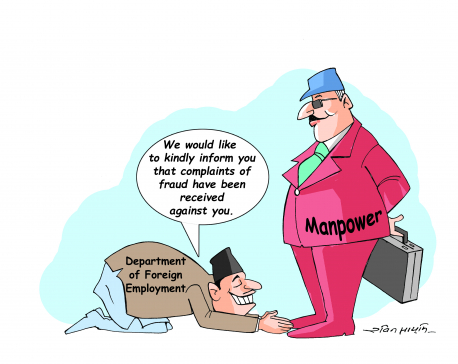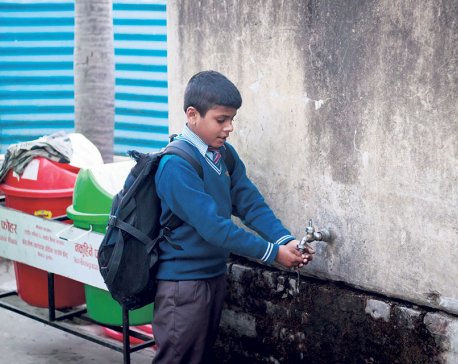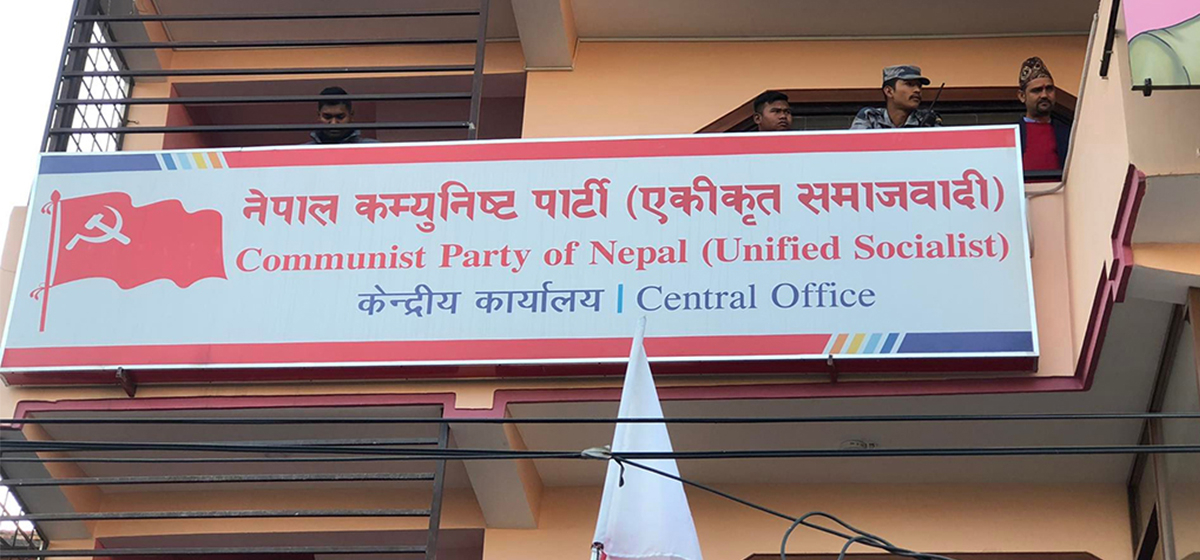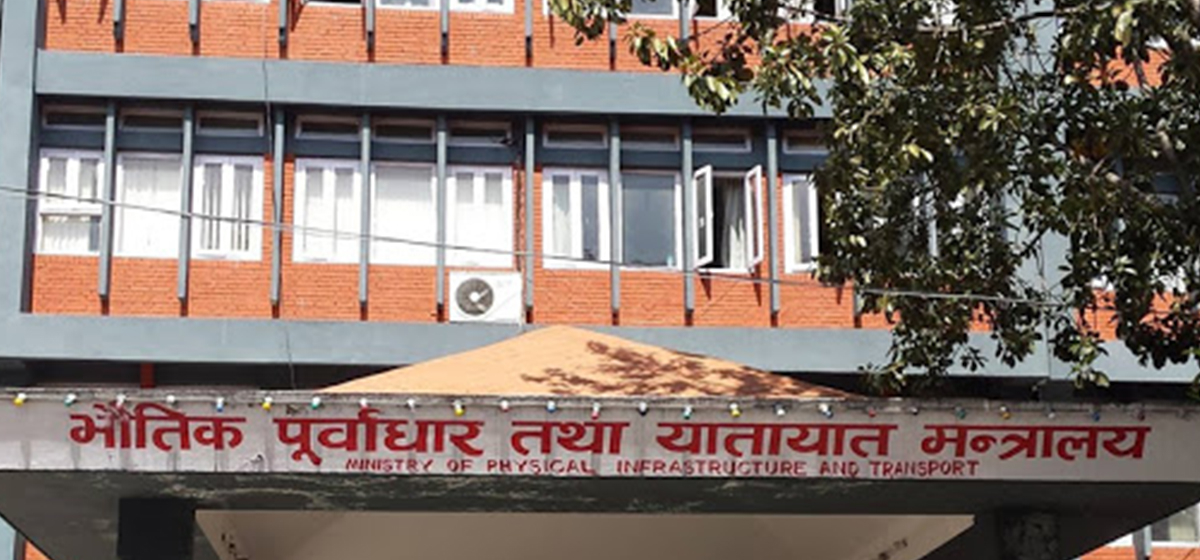
OR
Cover story

It had been an entire day full of interviews but still, Urban Girl’s co founder, Nikita Acharya wasn’t able to find suitable candidates to fill her office’s sales position. With Urban Girl, the online shopping destination getting a lot of traction lately, the young entrepreneur’s dream of expanding her business is slowly materializing. Currently she finds her company in a favorable position, however, a formidable challenge has made its presence felt. Apparently, the scarcity of skilled and experienced manpower in the country’s hiring pool is proving to be quite troublesome to manage.
“Sometimes it feels like we have already hired everybody who plans to stay behind in the country. Almost 90 percent of the applicants who had come over for the latest job interview wanted to eventually go abroad. So even when we reduced our contract’s requirement from two to at least one year’s commitment, majority of the candidates weren’t able to give us that guarantee. The rest of the 10 percent were still undergrad students so they didn’t meet our certain criteria,” explains Acharya.
The available options for new recruits were so slim that eventually she had to give in. Acharya decided to settle for a six-month contract with her present new sales employee because that was the best case scenario. Without the compromise she was at the risk of being short-staffed and that was obviously unacceptable at this time of her business’s growth.
These kinds of recruitment troubles have become one of the burning issues in the entrepreneur and startup circles. Acharya is definitely not the only one who finds herself in this boat. CEO and founder of Anthropose, Suraj Shrestha, for instance, personally believes the situation has gotten worse over the years.
“In my experience, compared to 2011 when we began our venture to today, five years later, it’s become more difficult to hire and as well as sustain experienced and skilled staff. It is particularly difficult when we are looking for people with certain technical expertise or those with knowledge to do creative marketing. Similarly, abroad studies and residency are, hands down, the most common reason why our former employees have left the company,” says Shrestha.
Considering the predicament, he shares that he had even sought help from HR firms but the result was disappointing. Shrestha doesn’t question the competence of HR firms. Instead he assumes that it boils down to the fact that there weren’t suitable candidates in the market to begin with or else they would’ve found the candidates themselves.
These worrying consequences of brain drain is one of the concerns that has compelled MeroJob.com to kick start a survey to analyze the current job market and employment issues in the country. The popular career management site reportedly posts about 1000 new job vacancies on a monthly basis. They can see that the opportunities aren’t lacking but their experience of trying to meet the market’s demand too has been tricky.
Rajan Koirala, Senior Marketing Executive at MeroJob.com elaborates. “Every year we have more than 500,000 graduates ready to enter the job market. So we tend to have plenty of options if we are looking for freshers straight out of college. But indeed, we have to put in extra effort to locate experienced and skilled candidates. Not only is the allure of going abroad very strong for Nepalis in their 20s, I also believe, our education system doesn’t equip them with the necessary knowledge to thrive in real work environments. Thus together, it’s resulted in shortage of skilled and experienced manpower in Nepal,” he explains.
However, it isn’t only the qualified labor force, the flight of human capital from our country seems to be affecting entrepreneurs in the agriculture sector as well. Recent official government records may show that the number of Nepalis leaving the country for foreign employment has been on a decline since mid-September of last year but for Ashok Paudel, the scenario isn’t proving to be any more beneficial than before. Paudel recently started a farming venture with his partners in Sundarijal. These maybe early days for their business but they have already hit a roadblock in the workforce department. Despite their best efforts, they haven’t been able to find adequate number of people to work the fields.
“Not only has a big chunk of our labor force migrated to work overseas. The salary expectations among those who have returned or are left behind have also risen. Most people believe that working abroad means Rs 15,000-20,000 savings every month. As a result, even though they are unskilled, many of them are not willing to work for anything less than Rs 10,000 and that is a stretch for beginners like us who are working with just 20 ropanis of land,” says Paudel. Still in the face of such labor shortage, since there are no other options, he is being forced to consider increasing the pay rate.
Similarly, Urban Girl’s Acharya shares that they too have decided to adjust their selection criteria to fill their vacancies. They are also regularly holding interviews in hopes of finding more people who will be able to commit long term. Shrestha from Anthropose, on the other hand revels that they are looking into automation technologies so that there won’t be need to rely heavily on the labor force. Also he is paying particular attention to finding ways for retaining the employees at the company.
As challenging as the current situation may be, they all unanimously agree that the only way forward is to find alternatives and carry on. “The entire country is in its transitional phase and these are problems that come with it. There are more ambitions and ideas among the youth. The entrepreneurial ventures are also rapidly increasing but we haven’t reached the level where we can provide the kind of quality opportunities that are available abroad. Thus the intent to migrate remains ever so strong,” reasons Shrestha.
Acharya agrees as well. Despite the negative impact of the brain drain on her business, she also doesn’t see the point of forcing any Nepali who doesn’t want to stay behind or return to the country to do so. She has come to the conclusion that there isn’t much that she can do about this issue right now. But the hope is that, the current generation who is striving to create opportunities locally will succeed enough to compel the younger generation to at least think twice before packing their bags.
priyankagurungg@gmail.com
You May Like This

DoFE refuses to file complaints against defrauding manpower companies
KATHMANDU, July 12: Senior officials at the Department of Foreign Employment (DoFE) are responsible for regulating manpower agencies across the... Read More...

DoA asks Nepal Red Cross to suspend new recruitment
KATHMANDU, March 28: Kathmandu District Administration Office (DOA) has asked Nepal Red Cross Society (NRCS) to suspend its new recruitment process... Read More...

Rainwater collection for our water woes
KATHMANDU, Nov 23: Nepal is the second richest country in the world in water resources. This is a statement that most... Read More...





Just In
- Construction of bailey bridge over Bheri river along Bheri corridor reaches final stage
- Taylor Swift releases ‘The Tortured Poets Department’
- India starts voting in the world’s largest election as Modi seeks a third term as prime minister
- EC seeks cooperation for free and fair by-election
- Bus carrying wedding procession attendees meets with accident in Sindhupalchowk; three killed
- CPN (Unified Socialist) to hold its Central Committee meeting on May 10-11
- Over 16,000 paragliding flights conducted in one year in Pokhara
- MoPIT prepares draft of National Road Safety Act, proposes rescue within an hour of an accident














Leave A Comment